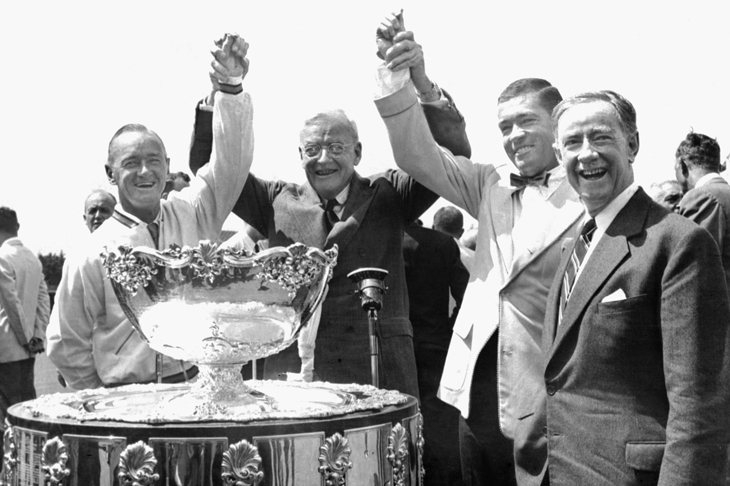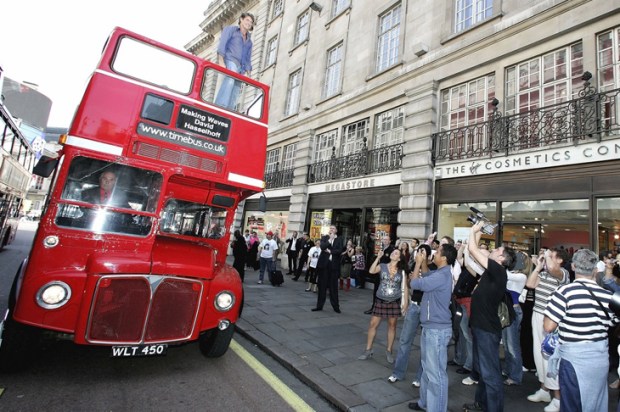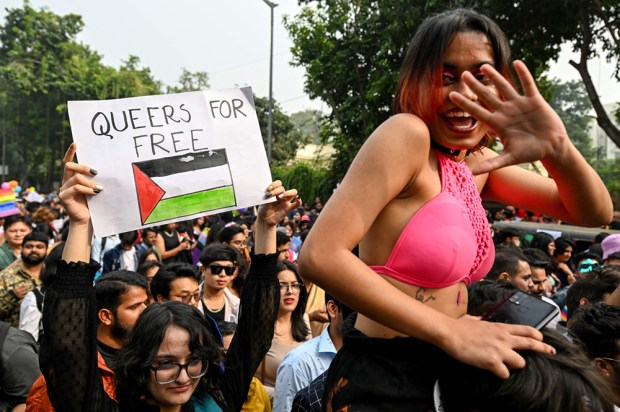Is the word ‘bonzer’ no longer part of the living Australian language? Bernard Salt thinks not, writing in the Weekend Australian: ‘I question whether this word, so acclaimed as the embodiment of our nation, exists in real life. I have never heard anyone use the term bonza, meaning good, in a genuine (as opposed to comedic) context.’ Bonzer is (or was) a general term of approval. As for its origin: its starting point (‘perhaps’ says the Australian National Dictionary) is the French word for good, bon. By the late 19th century this was made more emphatic by being turned into the colloquial word ‘bonster’. And this, in turn, developed into the rather easier-to-say ‘bonzer’ – perhaps influenced by the Mexican-American word ‘bonanza’. Sue Butler says that until World War Two ‘bonzer’ was a powerful word in Aussie English, but after that we were internationalised. Michael Quinion (on his World Wide Words website) has described ‘bonzer’ as ‘an archetypal Australianism, typical of the lively and expressive slang of that country’. So, I hope we’re not losing this rather beaut Aussie word! In 1928 distinguished Australian essayist Sir Walter Murdoch was asked to judge 300 odes submitted in an ‘Ode to Western Australia’ competition (to mark the centenary of that state). In a later essay Murdoch complained that the vast majority of the competing entries began with ‘hail’ or ‘all hail’ and then threw in an extra ‘hail’ when their feelings got the better of them. After slogging patiently through 300 of these things he wrote his own, which begins:
Hail beauteous land!
Hail ‘bonzer’ West Australia;
Compared with you,
All others are a failure.
This probably makes it the only ode in the world to contain the word ‘bonzer’. (See what the rest of them are missing out on?) So, has this word really died? Mind you, there is a new low-cost airline in Australia called Bonza Airlines. And perhaps it is time to start a little club to restore the use of ‘bonzer’ (or ‘bonza’–spell it how you wish). Membership of the club would consist of people who instead of saying something is good, choose to say it’s ‘bonzer’. Membership is free (so far we don’t have a membership badge) – and to join all you need do is start saying ‘bonzer’ from time to time. Are you in?
A number of supporters of the Yes campaign for the Voice say their long-term goal is to use the Voice to obtain ‘reparations’ for Indigenous Australians. ‘Reparation’ came into English from Middle French in the 1300s meaning ‘recompense for an injury or an injustice’ (Oxford English Dictionary). When would it make sense to say I am entitled to ‘reparations’ from you? If you accidentally injure me such that I can no longer work in my profession – does that mean you owe me ‘reparation’ for lost income? Let’s imagine you do something to help me – perhaps pay for training so I can find alternative employment, or give me accommodation in your granny flat when I can’t pay my rent? Should I accept that as appropriate ‘reparation’ or not? In case of Indigenous Australians has ‘reparation’ already been made? Approximately 43 per cent of Australia is now under native title (according to the National Native Title tribunal). Does that count as ‘reparation’? Are there benefits of Western civilisation that should count as ‘reparation’? Such benefits as: a written language, engineering, democracy, the common law and more along those lines. At what point is it possible to say that reparation has been made? Or will only land title do? The 2020 book Living on Stolen Land by Ambelin Kwayamullina makes the assumption that only land restored can recompense for land taken. But the language, and concept, of ‘reparation’ is not limited to like for like. So, have Indigenous Australians already received ‘reparations’ in the form of the technology they use, the clothes they wear, the cars they drive, the elections they vote in, the targeted welfare of $32 billion a year and so on. Do those things balance each other out? Is land use bequeathed by colonial settlement balanced by the widescale benefits received by the present Indigenous generation?
Got something to add? Join the discussion and comment below.
Get 10 issues for just $10
Subscribe to The Spectator Australia today for the next 10 magazine issues, plus full online access, for just $10.
Contact Kel at Ozwords.com.au
You might disagree with half of it, but you’ll enjoy reading all of it. Try your first month for free, then just $2 a week for the remainder of your first year.














Comments
Don't miss out
Join the conversation with other Spectator Australia readers. Subscribe to leave a comment.
SUBSCRIBEAlready a subscriber? Log in